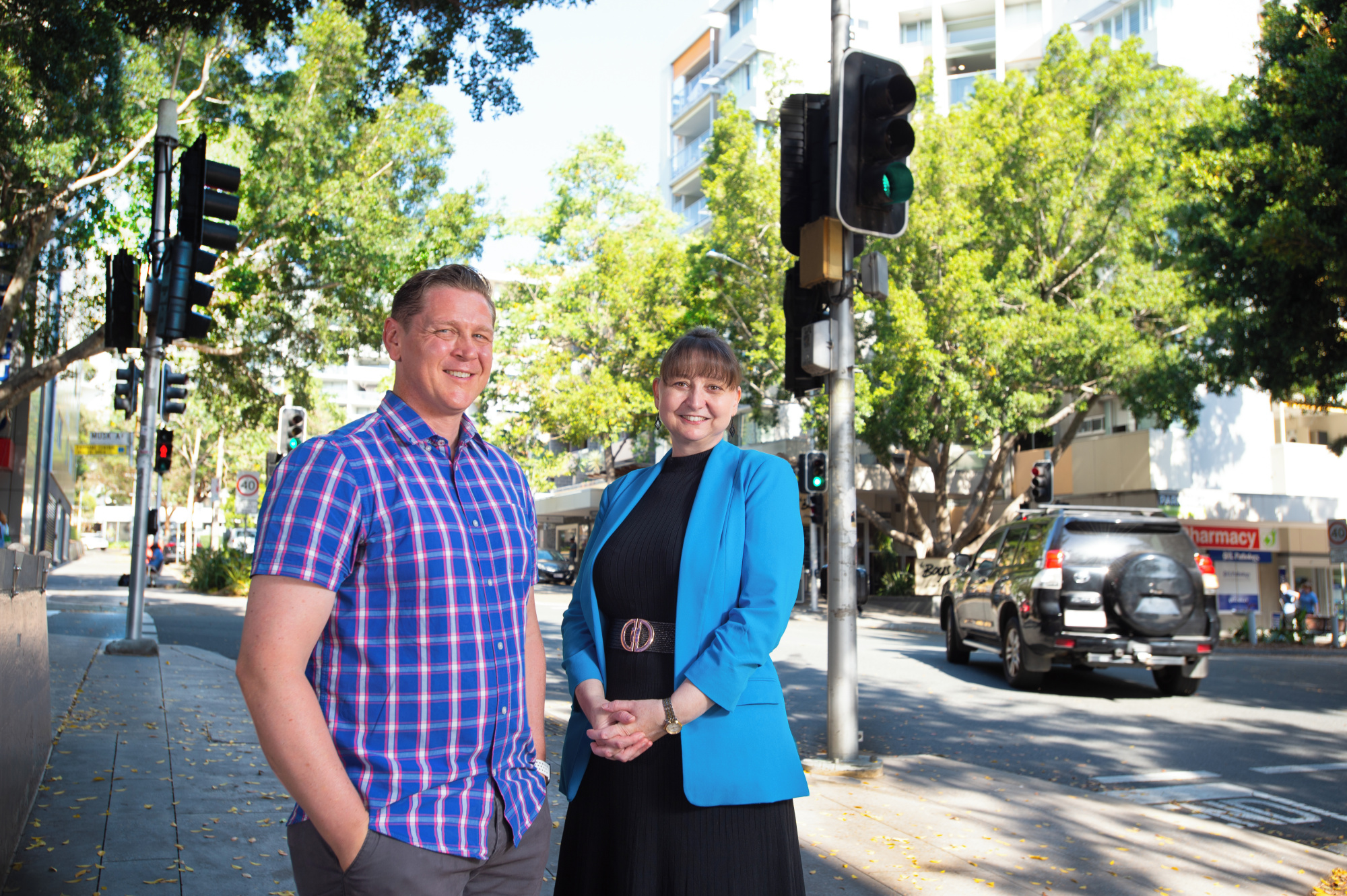
[ad_1]
The largest on-road trial of related car expertise in Australia has discovered members who used the expertise for 9 months accredited of it generally and contributed vital suggestions on additional enhancement to the expertise.
Part of the broader Ipswich Connected Vehicle Pilot (ICVP) the analysis examine was performed by QUT highway security consultants with 355 members driving their very own automobiles, retrofitted with related car expertise, in and round Ipswich, Queensland.
The car retrofit included a dashboard-mounted show, an exterior antenna, and a co-operative clever transportation techniques (C-ITS) car station, which related members’ vehicles to exterior infrastructure reminiscent of 29 related signalised intersections, to cloud techniques and to different automobiles fitted with the identical related car system.
Dr David Rodwell, from QUT CARRS-Q (Centre for Accident Research and Road Safety – Queensland), stated the examine aimed to know the person expertise and acceptance of C-ITS as an assist to safer highway use.

He stated that via the dashboard shows members had been offered with superior red-light warnings, upcoming visitors queue recommendation, present pace restrict info, highway hazard warnings, highway works warning, and an alert that weak highway customers – pedestrian or cyclists – had been crossing at an upcoming signalised intersection.
“Participants were generally positive about the system, could appreciate the safety benefits it offered, and were interested in adopting the technology when future systems were refined, such as having the system seamlessly integrated in their vehicle,” Dr Rodwell stated.
“User acceptance is a key determinant of the future effectiveness of C-ITS as it affects uptake of these vehicles and the optimal functioning of such systems depends on widespread public uptake.
“Communication between related automobiles and infrastructure has the potential to extend highway security, scale back congestion and air pollution, and enhance the administration, upkeep, monitoring and management and security of transport networks.”
Dr Rodwell stated two qualitative research comprising 53 particular person participant interviews and 14 focus teams with 47 members revealed key findings, together with:
- The in-vehicle pace characteristic was essentially the most mentioned and preferred as a trusted supply of the pace restrict in inadequately signed areas.
- Both the superior red-light warning and the turning warning for a weak highway person had been usually impartial or unfavorable on account of inaccuracy, too early or late timing, or false alarms.
- Mixed reactions to the opposite warnings – the highway works warning was deemed conceptually useful however lacked accuracy; few members skilled again of queue and highway hazard warnings however reported wanting this kind of warning.
“Overall, many participants described C-ITS as a beneficial addition to their vehicle and almost all expressed positive expectations about future improved systems,” Dr Rodwell stated.
Their suggestions included concepts for enhancements:
- Receive private driving statistics – such suggestions might assist them to study and proper poor driving habits or driving errors.
- Data privateness and safety – most members had been keen for his or her information to be shared when moral and authorized protections are in place, its objective was clearly communicated and was nameless and aggregated. They additionally steered drivers have management of the extent and kind of information shared below completely different contexts and third events. Others stated they might consent for information to be shared for highway security analysis and expertise improvement.
- Unacceptable contexts for sharing information included gross sales and advertising and marketing, hacking and information misuse and punitive enforcement.
“These findings give important insights into future C-ITS implementation as user experience and perception will be key to ensuring wide-spread adoption of this technology.”
The examine, In their very own phrases: A qualitative examine of customers’ acceptance of related car expertise after 9 months of expertise with the expertise, was revealed in Transportation research part F: Traffic Psychology and Behaviour
The analysis was supported by the ICVP and delivered by the Department of Transport and Main Roads (TMR), supported by the Motor Accident Insurance Commission, QUT, iMOVE Australia, Telstra, Ipswich City Council, and the Department of Infrastructure, Transport, Regional Development, Communications and the Arts.
(Feature photograph credit score: Paul Taylor GettyImages Stone Collection)
[adinserter block=”4″]
[ad_2]
Source link